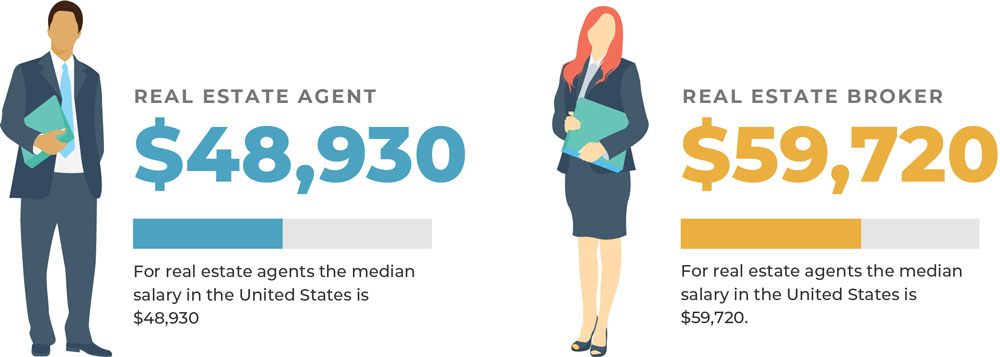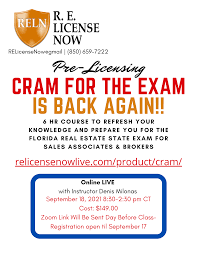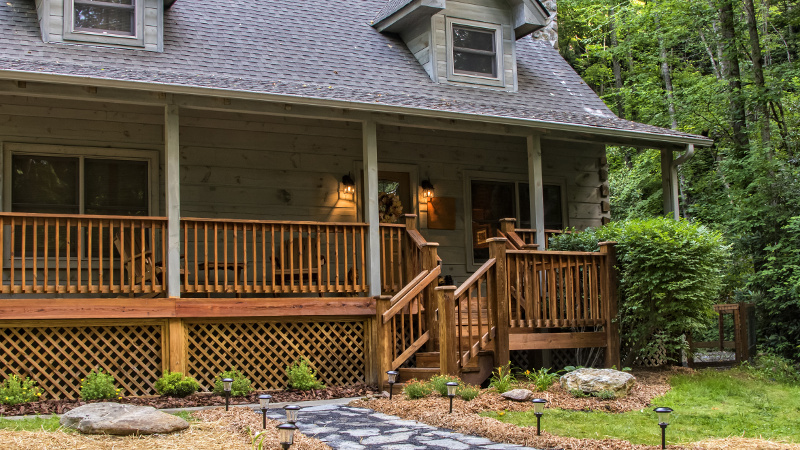
GRI is an emblem of excellence and professionalism in the real-estate industry. It will help you get new clients and give you an edge in your profession. Three methods can be used to get the designation: you can enroll in a Graduate REALTOR Institute's (GRI) program or earn an SPL Credit. You also have the option of taking a series on post-licensure courses. The amount of education required depends on the state you live in.
First, complete the GRI Request Form to be eligible for the GRI. You then have five years to complete the program and pass the GRI final exam. Failure to pass the exam will allow you to retake it for free. This allows you to obtain the designation quickly and without wasting time.
The GRI curriculum includes in-depth instruction on a variety of topics, including professional practice, ethics, finance, technology, and risk management. It also covers legal and regulatory issues. It is vital to keep up-to-date with laws and regulations as the real estate market is always changing. It is also important to learn how to deal with buyers and sellers. These courses can help you deal with many different real estate situations.

GRI certification gives you the tools you need to thrive in an ever-changing market. This designation will allow you to provide excellent service to clients, increase your sales, and navigate current real estate conditions.
The GRI badge is a great way for you to show your commitment to professionalism, education, integrity. Clients will be impressed when they view a GRI badge-wielding Realtor. GRI-designated agents often earn at least 30% more than their counterparts.
The GRI program's curriculum can vary from one state or another. For example, in Minnesota, you must take at least 54 hours of coursework. But the program's core objectives remain consistent and are generally the same in all states. Many of these courses can be accepted for Minnesota real-estate continuing education credit.
The courses include an introduction to investment real estate, risk management, technology, business skills, and more. Each course is worth three GRI credits. As you finish your study, you will learn how to better understand legal and regulatory issues in the real estate industry. Some courses offer credit towards the CRS certification, which is the highest designation available for residential Realtors.

Real estate transactions are a complicated process. It is important that agents are professional and utilize the latest technology to assist their customers. GRI provides you with the training necessary to make a positive impression on your clients.
Register for the GRI Program on the NATIONAL ASOCIATION OF REALTORS (r) website. In addition, you can find a list of GRI classes online.
FAQ
How can I repair my roof?
Roofs may leak from improper maintenance, age, and weather. For minor repairs and replacements, roofing contractors are available. Get in touch with us to learn more.
How much money will I get for my home?
It depends on many factors such as the condition of the home and how long it has been on the marketplace. According to Zillow.com, the average home selling price in the US is $203,000 This
What are the drawbacks of a fixed rate mortgage?
Fixed-rate loans tend to carry higher initial costs than adjustable-rate mortgages. If you decide to sell your house before the term ends, the difference between the sale price of your home and the outstanding balance could result in a significant loss.
How can I get rid Termites & Other Pests?
Termites and many other pests can cause serious damage to your home. They can cause serious destruction to wooden structures like decks and furniture. It is important to have your home inspected by a professional pest control firm to prevent this.
Statistics
- 10 years ago, homeownership was nearly 70%. (fortunebuilders.com)
- When it came to buying a home in 2015, experts predicted that mortgage rates would surpass five percent, yet interest rates remained below four percent. (fortunebuilders.com)
- It's possible to get approved for an FHA loan with a credit score as low as 580 and a down payment of 3.5% or a credit score as low as 500 and a 10% down payment.5 Specialty mortgage loans are loans that don't fit into the conventional or FHA loan categories. (investopedia.com)
- Over the past year, mortgage rates have hovered between 3.9 and 4.5 percent—a less significant increase. (fortunebuilders.com)
- This means that all of your housing-related expenses each month do not exceed 43% of your monthly income. (fortunebuilders.com)
External Links
How To
How to Manage a Property Rental
You can rent out your home to make extra cash, but you need to be careful. We'll show you what to consider when deciding whether to rent your home and give you tips on managing a rental property.
If you're considering renting out your home, here's everything you need to know to start.
-
What are the first things I should consider? You need to assess your finances before renting out your home. You may not be financially able to rent out your house to someone else if you have credit card debts or mortgage payments. It is also important to review your budget. If you don't have enough money for your monthly expenses (rental, utilities, and insurance), it may be worth looking into your options. You might find it not worth it.
-
What is the cost of renting my house? It is possible to charge a higher price for renting your house if you consider many factors. These factors include location, size, condition, features, season, and so forth. Keep in mind that prices will vary depending upon where you live. So don't expect to find the same price everywhere. The average market price for renting a one-bedroom flat in London is PS1,400 per month, according to Rightmove. This means that you could earn about PS2,800 annually if you rent your entire home. This is a good amount, but you might make significantly less if you let only a portion of your home.
-
Is it worth it. Although there are always risks involved in doing something new, if you can make extra money, why not? Be sure to fully understand what you are signing before you sign anything. Your home will be your own private sanctuary. However, renting your home means you won't have to spend as much time with your family. Before you sign up, make sure to thoroughly consider all of these points.
-
Are there any advantages? So now that you know how much it costs to rent out your home and you're confident that it's worth it, you'll need to think about the advantages. There are many reasons to rent your home. You can use it to pay off debt, buy a holiday, save for a rainy-day, or simply to have a break. No matter what your choice, renting is likely to be more rewarding than working every single day. And if you plan ahead, you could even turn to rent into a full-time job.
-
How do I find tenants Once you've decided that you want to rent out, you'll need to advertise your property properly. You can start by listing your property online on websites such as Rightmove and Zoopla. After potential tenants have contacted you, arrange an interview. This will help to assess their suitability for your home and confirm that they are financially stable.
-
How can I make sure that I'm protected? If you fear that your home will be left empty, you need to ensure your home is protected against theft, damage, or fire. In order to protect your home, you will need to either insure it through your landlord or directly with an insured. Your landlord will typically require you to add them in as additional insured. This covers damages to your property that occur while you aren't there. This does not apply if you are living overseas or if your landlord hasn't been registered with UK insurers. In these cases, you'll need an international insurer to register.
-
You might feel like you can't afford to spend all day looking for tenants, especially if you work outside the home. You must put your best foot forward when advertising property. Post ads online and create a professional-looking site. Additionally, you'll need to fill out an application and provide references. While some people prefer to handle everything themselves, others hire agents who can take care of most of the legwork. You'll need to be ready to answer questions during interviews.
-
What happens after I find my tenant?After you've found a suitable tenant, you'll need to agree on terms. If there is a lease, you will need to inform the tenant about any changes such as moving dates. Otherwise, you can negotiate the length of stay, deposit, and other details. You should remember that although you may be paid after the tenancy ends, you still need money for utilities.
-
How do you collect the rent? When the time comes for you to collect the rent you need to make sure that your tenant has been paying their rent. If your tenant has not paid, you will need to remind them. After sending them a final statement, you can deduct any outstanding rent payments. You can always call the police to help you locate your tenant if you have difficulty getting in touch with them. If there is a breach of contract they won't usually evict the tenant, but they can issue an arrest warrant.
-
How do I avoid problems? It can be very lucrative to rent out your home, but it is important to protect yourself. Install smoke alarms, carbon monoxide detectors, and security cameras. Also, make sure you check with your neighbors to see if they allow you to leave your home unlocked at night. You also need adequate insurance. You must also make sure that strangers are not allowed to enter your house, even when they claim they're moving in the next door.